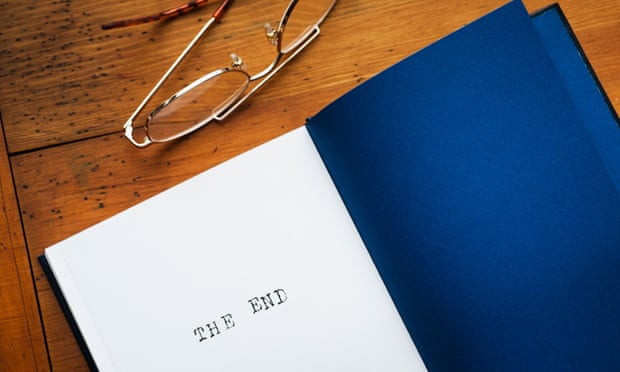- UID
- 83
- Online time
- Hours
- Posts
- Reg time
- 5-9-2017
- Last login
- 1-1-1970
|
Edited by cynic at 3-9-2018 02:46 PM

Authors feel betrayed if readers jump forward in their stories – but it may actually enhance appreciation of their work
Want to upset a novelist? Tell them you always read the end of a book when you are halfway through reading.
Not only will you be marked down as a philistine, you will be condemned as someone whose disregard for the order in which they intended their book to be read makes you unfit to read it at all. That, at least, was the reaction to my unwitting confession to this habit recently.
Unlike Harry in When Harry Met Sally, I do not read the end “in case I die before I get there”. I do it because I am a literary flâneuse: not only does knowing the end mean I can enjoy the scenery, but it means I am insured against that dreadful crime – the Bad Ending. I don’t mean heartbreaking goodbyes to characters I love, I mean the dreadful realisation that everyone, including the writer, has basically gone home in the last 50 pages. Bad endings don’t just betray the characters, they betray the reader.
I have lost count of the times friends have moaned about being let down by the end to a book they loved, while I listened smug in the knowledge I insured against that by skipping. Take Michel Faber’s otherwise brilliant The Crimson Petal and the White. As friends complained that the last 50 pages lost momentum, my bad habit meant none of the savour of the exhilarating journey was tarnished. While friends ploughed on with Gillian Flynn’s Gone Girl to “see what the fuss was about”, I moved on to something more enjoyable, safe in the knowledge I wasn’t missing out, because I had already read the last chapter.
This is not the way authors see it. Rowan Coleman begged me not to read the end of her forthcoming novel The Summer of Impossible Things because she had spent 14 months figuring it out. She said: “When you spend such a very long time carefully crafting pace and reveal, you do rather want the reader to trust you. I can tell if I trust a writer from chapter one. If I don’t, I don’t read on.”
Children’s author Chris Priestly was equally saddened. “The order a story is in is the writer’s intended order,” he pointed out. Like Coleman, he felt I lacked trust when I broke the journey to check out the destination. “I’m not shocked,” he hastened to add, “just a bit baffled as to why you would deliberately cheat yourself of the pleasure of that linear development of a story”.
To them, skipping implies a lack of trust in their vision, a failure to understand the engineering and skill that goes into unfurling a plot. But that isn’t true for me. I am sure Sebastian Barry slaved over the structure of his epic Days Without End so that it communicated his vision of diaspora, identity and nationhood. But knowing what happened in the last few pages did not undermine my pleasure in his telling, it enhanced it.
And I’m not the only one: proper science proves I’m on to something. Back in 2011, a study at the University of California found that instead of spoiling a book, skipping ahead enhances the pleasure. “Plots are just excuses for great writing. What the plot is is (almost) irrelevant. The pleasure is in the writing,” said Nicholas Christenfeld, a UC San Diego professor of social psychology. Even better, he found that once a reader knew how the story ended, they were able to enjoy a deeper experience of the prose. My point exactly.
Source |
|